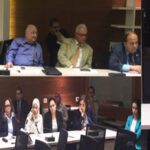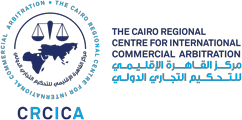
13 January 2016: Shari’a as Electio Juris
Jan 13 2016
The first 2016 Wednesday One Seminar entitled “Shari’a as Electio Juris” was delivered by Mr. Mohamed Madkour, Partner & Head of Dispute Resolution, Ibrachy & Partners Law office. The lecture explained the history of Islamic finance and analyzed the expression “Islamic law”. The speech refuted the existence of an effective method to apply Islamic law in contracts and in dispute resolution. One of the main reasons, as perceived by the lecturer, is the existence of different schools of fiqh and the existence of conflicts between Islamic law requirements and existing international arbitration rules. Mr. Madkour argued that the existing state laws are sufficient to guarantee the applicability of Islamic law. The innovating argumentative approach, of the lecture, triggers various questions and created lively discussions.
View Details
Reflections on CRCICA Practice Notes
Oct 08 2015
On 8 October 2015, Mr. Tewfik Shihata, Principal, SHEHATA, Attorneys at Law, delivered a speech entitled "Reflections on CRCICA Practice Notes", in which he commented on CRCICA's Practice Notes, issued in June 2014, out of a practitioner's perspective. Attended by a variety of professionals, the speech was followed by a CRCICA commentary and lively discussions.
It is notable that CRCICA Practice Notes govern the discretional role of the Centre as well as its policies regarding eight important decisions under CRCICA's Arbitration Rules including the application of Article 10(3) of the Rules regarding multiparty arbitrations and its correlation with Article 9(2); the Centre's decision not to proceed with arbitral proceedings (Article 6); the termination of already suspended arbitral proceedings, the determination of the costs of arbitration in case of the termination of proceedings before the issuance of a final award. The Practice Notes are available in Arabic and English on CRCICA's website at the following link:
 CRCICA Practice Notes JUNE 2014 (English version)
CRCICA Practice Notes JUNE 2014 (English version)
 CRCICA Practice Notes JUNE 2014 (Arabic version)
CRCICA Practice Notes JUNE 2014 (Arabic version)
View Details
Distinction between Facilitative and Evaluative Mediations: Which is More Appropriate?
Sep 30 2015
On 30 September 2015, a Mediation Breakfast Seminar titled "Distinction between Facilitative and Evaluative Mediations: Which is more appropriate?" was delivered by Ms. Fatma Ibrahim, Operations Officer (World Bank Group); accredited mediator and mediation trainer. Ms. Ibrahim defined the different types of mediation, shed light on the historical evolution of mediation techniques, and provided tools with the attendees to assess the appropriateness of which method to be used. The seminar was delivered in an interactive format, and was attended by representatives of many professional sectors and stakeholders.
View Details
Investment Climate in Egypt out of a Legal Perspective
Sep 09 2015
On 9 September 2015, Dr. Ziad Bahaa El Din delivered an interesting Seminar entitled “Investment Climate in Egypt out of a Legal Perspective”.
The Seminar highlighted the importance of creating sound legal climate for private investments, national and international alike, for a better future in Egypt. After displaying the history of governmental actions in this concern over the past decade, the Lecturer provided analytic reflections on the legislative reform still direly required in investment related laws in Egypt and the role they are envisaged to play in transcending the current economic crisis and raising the level of living for Egyptians.
Attended by a variety of professionals, the Seminar was well received for the perfect balance it stroke between law and economy.
Dr. Bahaa El Din is Lawyer and Legal Expert in the fields of economy, investment and finance. He is Of Counsel at Zaki Hashem and Partners and Former Deputy Prime Minister of Egypt for Economic Development and Minister of International Cooperation.
View Details
The Future of International Mediation
Jun 11 2015
On 11 June, Hon. Judge Louise Otis delivered a lecture on “The Future of International Mediation”. Hon. Otis is an international civil and commercial mediator and arbitrator and a retired Justice of the Quebec Court of Appeal where she spearheaded the introduction of judicial mediation. Out of this stance, the speaker introduced the emergence of judicial mediation twenty years ago when she first implemented a pilot program of judicial mediation in Quebec. The experience turned to be a great success and since that time Quebec has had a leading and powerful judge-led mediation system.
Focusing on the future of international mediation, Hon. Judge Otis opined that the future will witness radical improvements in the effectiveness of mediation. The most important aspect, according to her is the effective combination of mediation and arbitration which comes either consecutively or in parallel. They may be also combined through hybrid forms of ADR, such as Med-Arb where the “neutral” partly acts as an arbitrator, and partly as a mediator. The perspectives of the future as well as the leading Canadian experience in developing a fully integrated judicial system aroused various contemplations and questions from the floor.
View Details
